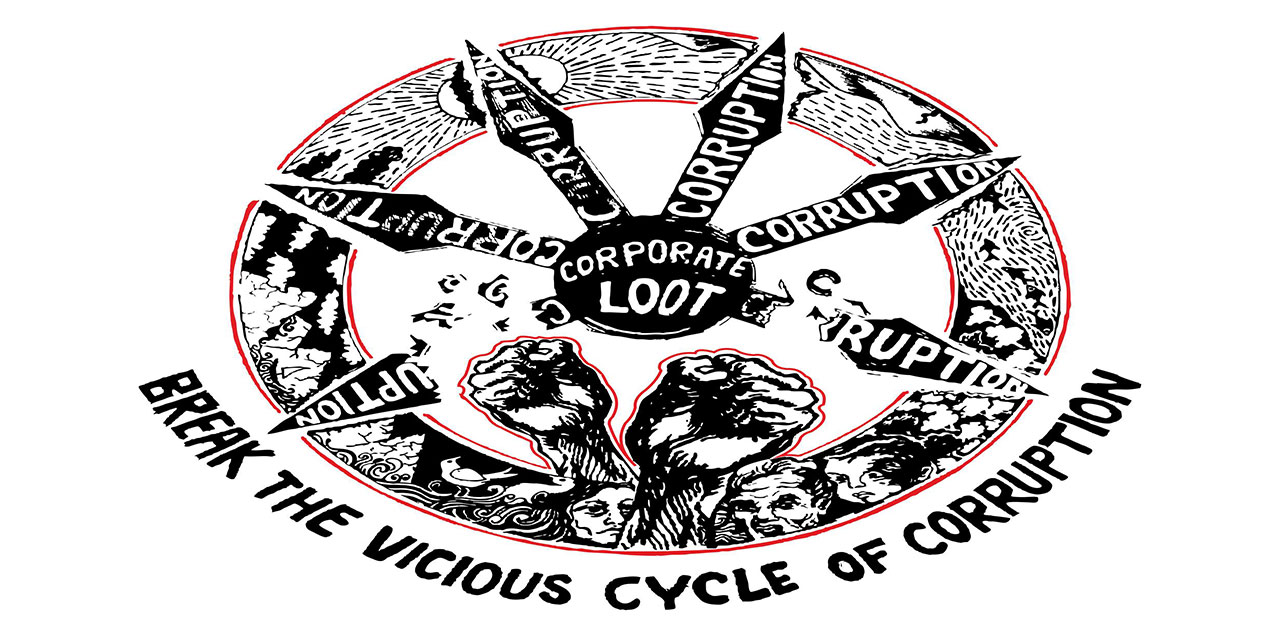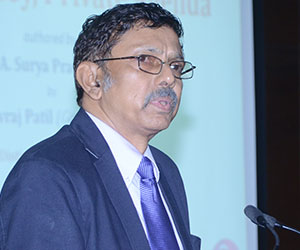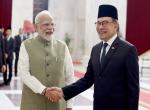The Prime Minister, Mr. Narendra Modi’s view that the time has come to discuss the issue of political funding is a logical corollary to the major campaign he has launched against corruption and black money and in this effort he has a strong ally in the Election Commission of India.
The Election Commission has been advocating stricter laws to regulate the funds of political parties and in recent times has even suggested amendments to the Representation of the People Act. The Chief Election Commissioner Mr. Nasim Zaidi has called for a drastic change in the law dealing with anonymous donations collected by political parties. Currently, a political party is not obliged to disclose the names of donors who donate less than Rs 20,000. This provision has seen gross misuse by parties across the political spectrum. They deposit huge sums of cash into their bank accounts and show them as the aggregation of donations which are less than Rs 20,000. So much so, over 80 per cent of the funds in the accounts of political parties fall in this category. These funds are generally “black” and come into a party’s coffers via bulk donations from money bags who traditionally support the party or from those who wish to convey their gratitude to a party for favours shown. This rule is indeed the source of political corruption and needs to be radically changed. The commission has suggested that the upper limit for anonymous donations be slashed to Rs 2000. Even this may provide an escape route for parties. Mr. Zaidi also wants stricter norms in regard to maintenance of accounts by political parties and audit of accounts.
The other menace is the plethora of political parties in India with over 1900 of them supposedly operating in the country. The mushroom growth of political parties has much to do with provisions in the Income Tax Act, which exempt them from paying tax on voluntary donations. Since the source of donations below Rs 20,000 need not be disclosed, political parties are floated to park black money. This needs to be taken cognizance of at the earliest.
Yet another big issue is the spending by individual candidates in elections. Earlier, the election campaign would be spread over four weeks and candidates spent money on cycle processions, posters, wall paintings and so on. Some decades ago, a serious candidate for a state assembly election spent a couple of lakhs of rupees. Lok Sabha candidates spent a little more. Now, with the passage of time, the amounts spent by candidates on elections has touched astronomical figures. Although the Election Commission has put a ceiling on election spending and even curtailed the campaign time to just 15 days, most candidates have a tendency to overshoot these limits and eventually file false declarations about their election spending. It is whispered that in many states - Andhra Pradesh, Uttar Pradesh and Bihar are some examples - winning candidates in Lok Sabha elections spend over Rs 10 crore on an election. When there are two or more serious contenders for a seat, the total spending in a constituency could well be over Rs 30 crore, and we have 543 elected seats in the Lok Sabha!
This has been a festering problem for decades and needs to be addressed, if the government is serious about eliminating or curbing the influence of black money in elections. The Election Commission has sought enhancement of punishment for those who violate the ceiling on election spending or those who file false declarations about election spending.
In his address on December 31, the Prime Minister said political parties, political leaders and electoral funding figure prominently in any debate on corruption and black money. He said it was time political leaders and parties respected the feelings of honest citizens and understood their anger. Political parties must shun the “holier than thou” approach and come together to prioritise transparency and take firm steps to free politics of black money and corruption.
The other issue the Prime Minister touched upon, which has a major impact on black money and politics, is the need to end the vicious cycle of elections and return to simultaneously elections to the Lok Sabha and the state assemblies. He said this would end the “endless cycle of elections”, election spending by parties and candidates and also minimize pressure on the administrative machinery.
India witnessed simultaneous elections to the Lok Sabha and the state assemblies in 1952, 1957, 1962 and 1967. This was disrupted because of the failure of some coalition governments in the late 1960s to serve their full term, but much of the blame or disrupting this process must be laid at the door of Prime Minister Indira Gandhi, who called an early election to the Lok Sabha in 1971 – a year ahead of schedule. Since then nobody has been able to synchronise elections to parliament and state assemblies again. Further, with the passage of time, the amounts spent by candidates on elections has touched astronomical figures. Although the Election Commission has put a ceiling on election spending, most candidates have a tendency to overshoot these limits and eventually file false declarations about their election spending. If the elections are synchorised, it is certain to bring down the spending, specially among the major national and state parties because the financial burden is shared by the candidates to the Lok Sabha and the state assemblies. The Department-Related Standing Committee of Parliament on Personnel, Public Services, Law and Justice, which has examined this issue in detail has made a strong case for a return to simultaneous elections. It said “frequent elections often leads to policy paralysis and governance deficit”. It leads to disruption in normal life and the delivery of essential services. The suggestions of this committee needs to be examined by all political parties with utmost seriousness and some way must be found to schedule all major elections once in five years.
Since Mr. Modi has decided to categorically take the lead to cleanse political funding, the proposals made by the Election Commission need to be acted upon. The government must circulate its proposals in this regard to the main political parties. There can be no Swachch Bharat without this! Those who oppose this will stand exposed.
(The author is a Distinguished Fellow at the VIF and is the Chairman of Prasar Bharati)
Published Date: 16th January 2017, Image Source: https://philosophersforchange.org











Post new comment